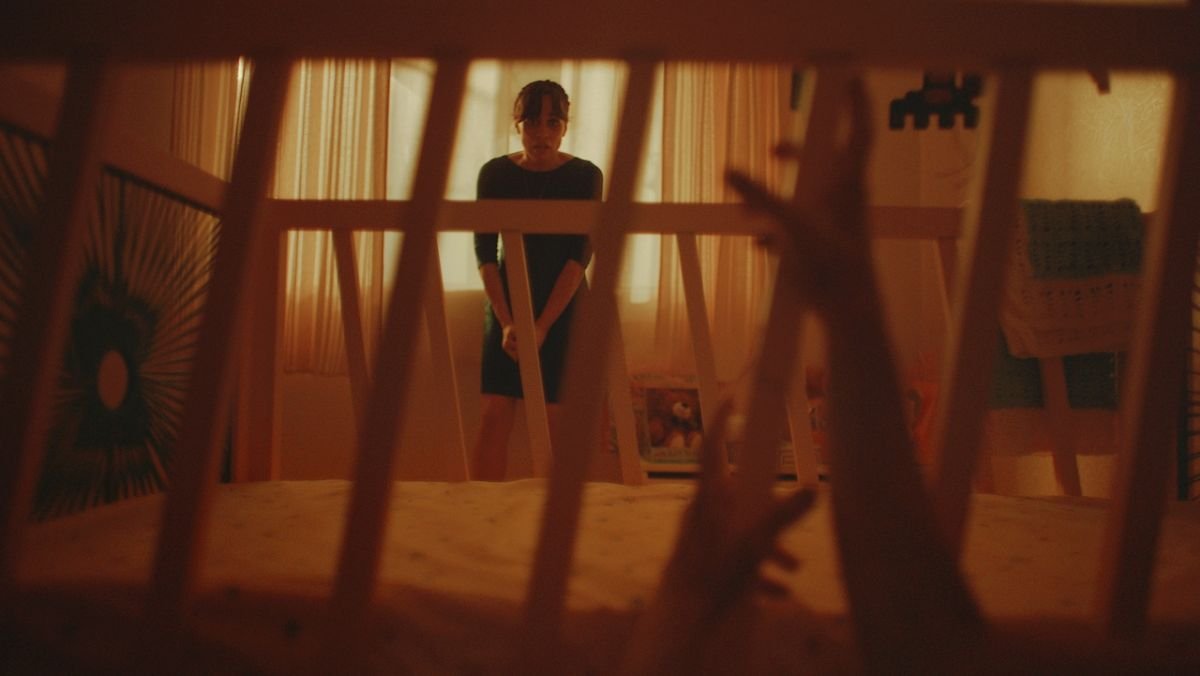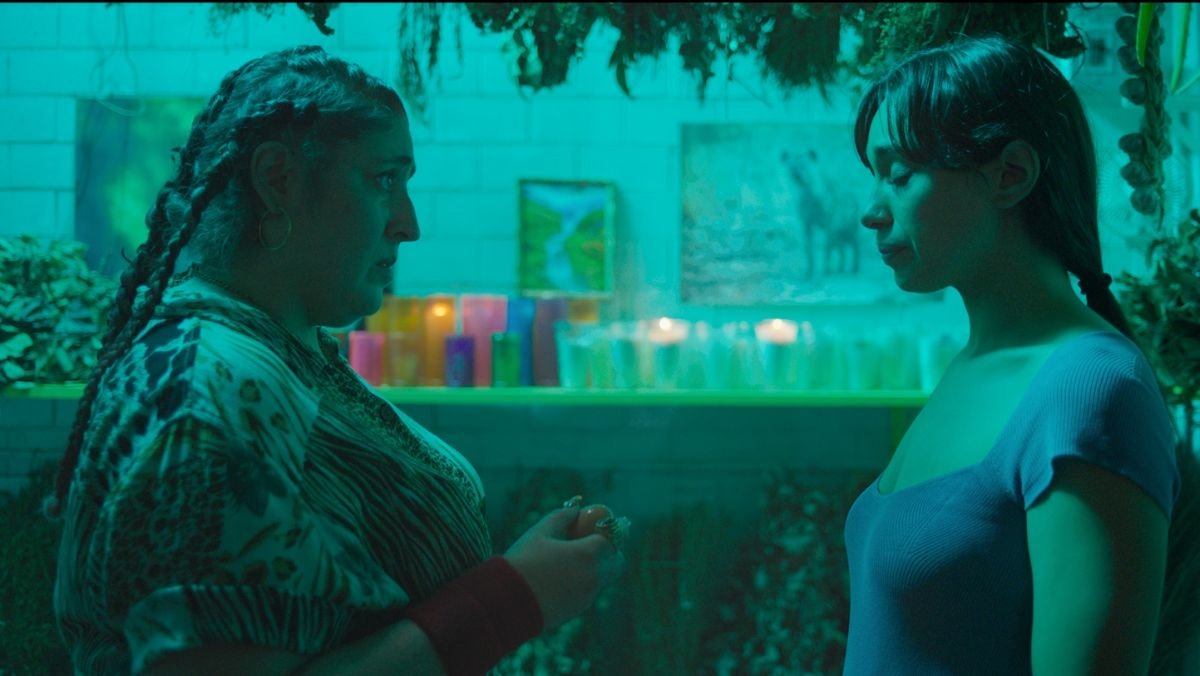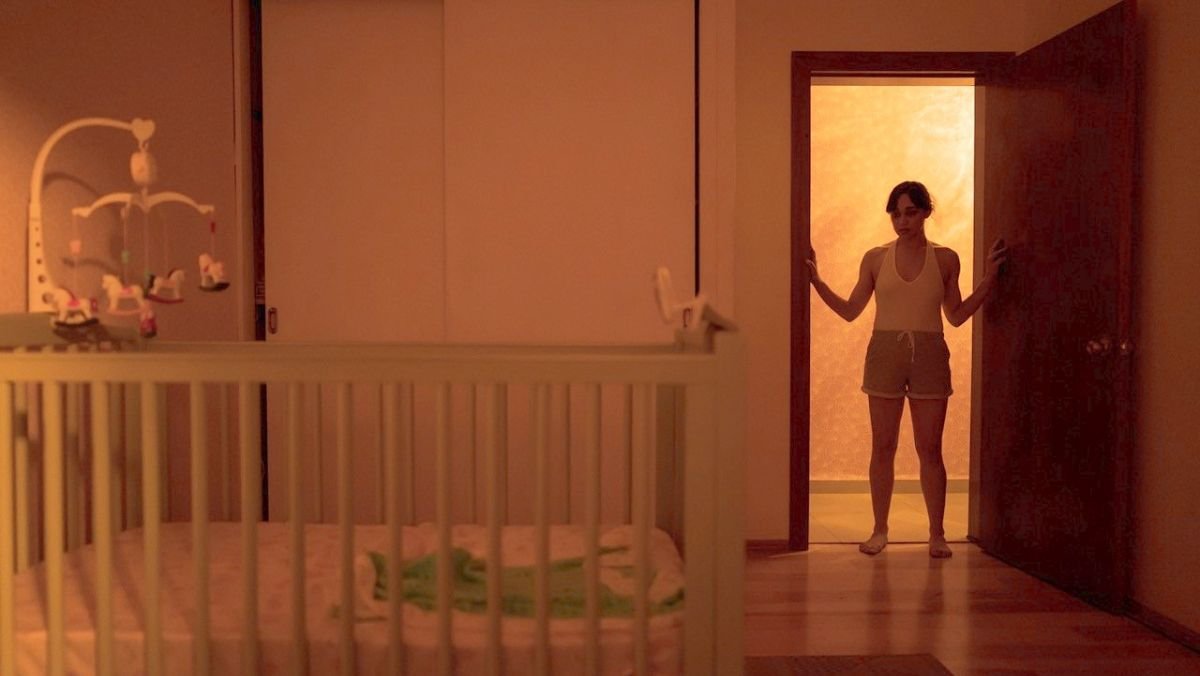The horror genre is often a reflection of our human realities, a mirror into our deepest fears and frustrating normative social structures. Through twisted narratives and unnerving imagery, we have to closely examine pervasive issues like stigmas around mental health and expectations placed upon a person’s shoulders thanks to patriarchy. And oftentimes, these stories weave in cultural traditions and folklore for more clarity on why people follow certain paths—or reject them altogether. All of these components exist within Huesera: The Bone Woman, powerful meditation on motherhood and immeasurable cost of bowing to familial and societal expectations.
Huesera is not treading uncharted waters in the “motherhood is f**king scary” realm. It comes on the heels of many stellar predecessors like the groundbreaking Rosemary’s Baby and The Babadook. However, this narrative comes from a Mexican perspective, leaning into cultural beliefs, practices, and legend. It crafts something that is unique and quite unsettling. The film’s title itself stems from the legend of La Huesera. This Mexican myth is about a woman who collects animal bones—specifically from wolves—until she has a complete skeleton. She sings life into those bones, bringing the creature back from another realm. It runs free towards an open horizon, sometimes transforming into the shape of a woman. The bones represent the life force within us that doesn’t want to be tamed. And La Huesera seeks to restore what is lost.
This figure gets a stunning reimagining in Huesera, a story anchored by the thoughtful direction and engaging script by Michelle Garza Cervera. The “bone woman” seemingly stalks Valencia (Natalia Solián), a woman who just found out she’s pregnant. At first, Valencia and her man Raúl (Alfonso Dosal) seem over the moon about the news, quickly sharing it with their relatives. But, the layers of this situation reveal themselves alongside La Huesera herself, a stalking, shadowy figure with a cracking skeleton. Does she seek to destroy Valencia through her child? Or, is she reaching out to her for greater revelations?

We slowly discover that Valencia’s carefully curated life is a façade, a conscious decision to go against her true nature to appease her family’s expectations. She was once the wolf, free to roam towards the horizon. And, with every forlorn look and anxiety-driven knuckle crack, Valencia spirals deeper into despair over her frightening new reality. An eerie cinematic shadow hangs over nearly every shot, dragging us into the terror that advances alongside her pregnancy. Solián certainly carries this film on her shoulders with a stunning and nuanced performance.
Huesera doesn’t make a full sprint towards the expected horror elements. Instead it opts for a slower burn approach to widen the scope of Valencia’s life. We encounter common family archetypes like the mean-spirited sister and the judgmental mother. However, they are counterbalanced with women characters who provide softness and a safe space for Valencia. With them, she can rest her fears, ponder her actual aspirations, and fulfill her desires.
Unlike other stories where the protagonist’s paranoia and pain is in isolation, Valencia has a window towards salvation. And, that salvation provides an ending that will be controversial to many yet satisfying within the scope of her world. Acts of self-preservation and selflessness coexist, a constant duality that mothers fight to attain. It culminates in a third act that is enlightening, heartbreaking, and brilliantly fuses folklore with the modern world.

Many elements of Huesera will resonate with mothers (and many women in general) across the globe. The assumption that because you are not “good with kids,” that something within you is askew. Endless pressure and shaming from elder relatives who place motherhood and a “traditional” nuclear family as the epitome of “success” that must be attained in some arbitrary time period. The labeling and dismissal of women who are childfree, whether by choice or uncontrollable circumstance. And, the gnawing feeling that if you do become a mother, you will never be good enough.
We experience this through Valencia, her palpable fears and discomfort being amplified by her experiences of the supernatural. It heightens the very real horrors that women face everyday: the potential of losing ourselves until we fade into barely visible shells of a human and not being believed, supported, or respected by those around us. Huesera hits the viewer hard with these horrors, elevating them above jump scares, crackling bones, and the looming dread that Valencia will birth something sinister. But, instead, it is more about the rebirth—or rather, a reclamation— of a woman who becomes completely broken only to have this experience reframe her entire existence.

Chilling, thrilling, and deeply engaging, Huesera: The Bone Woman is a formidable debut in what will hopefully be a long and fruitful career for Michelle Garza Cervera. The film will hit theaters on February 10 and VOD via XYZ Films on February 16.
